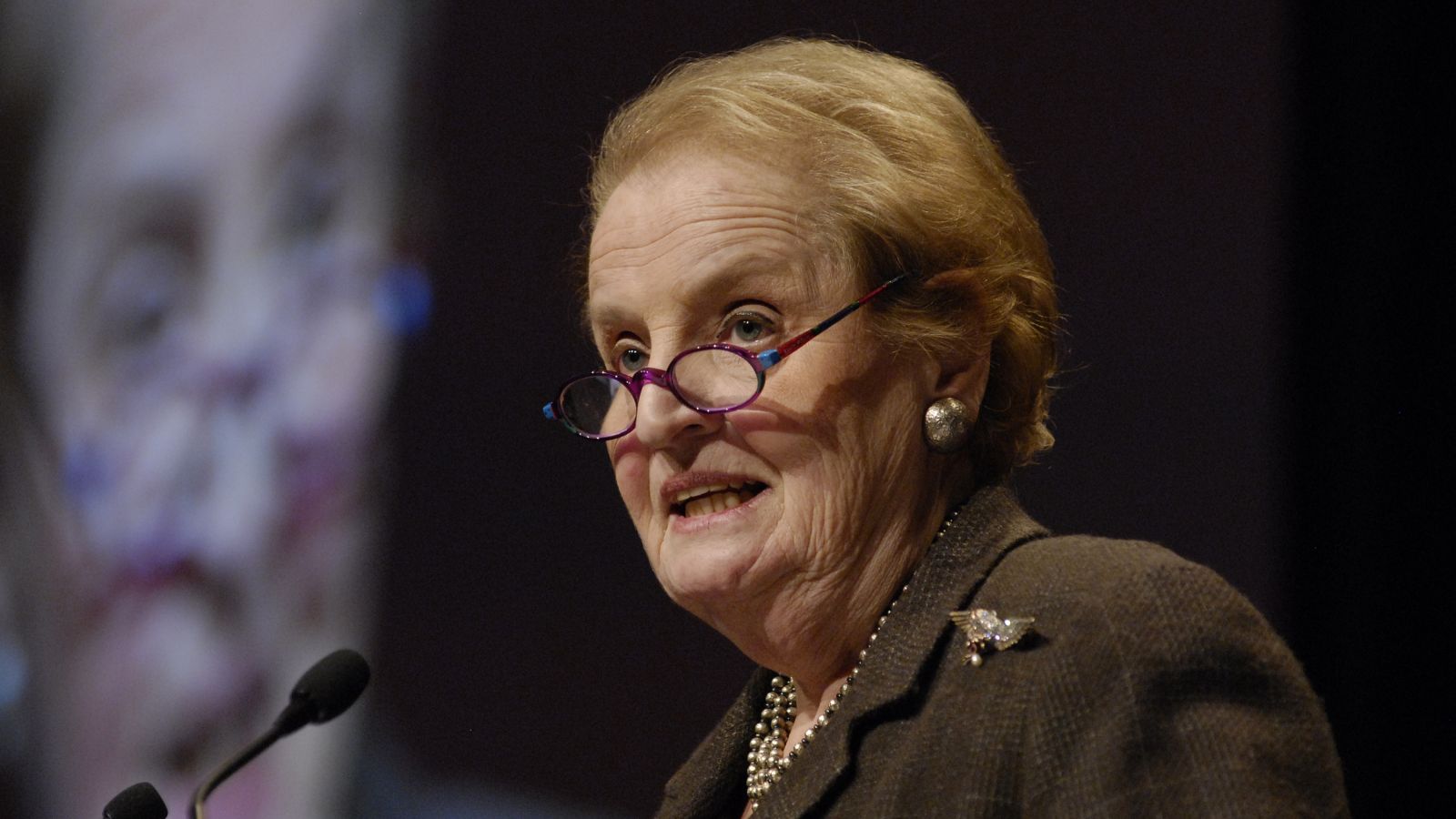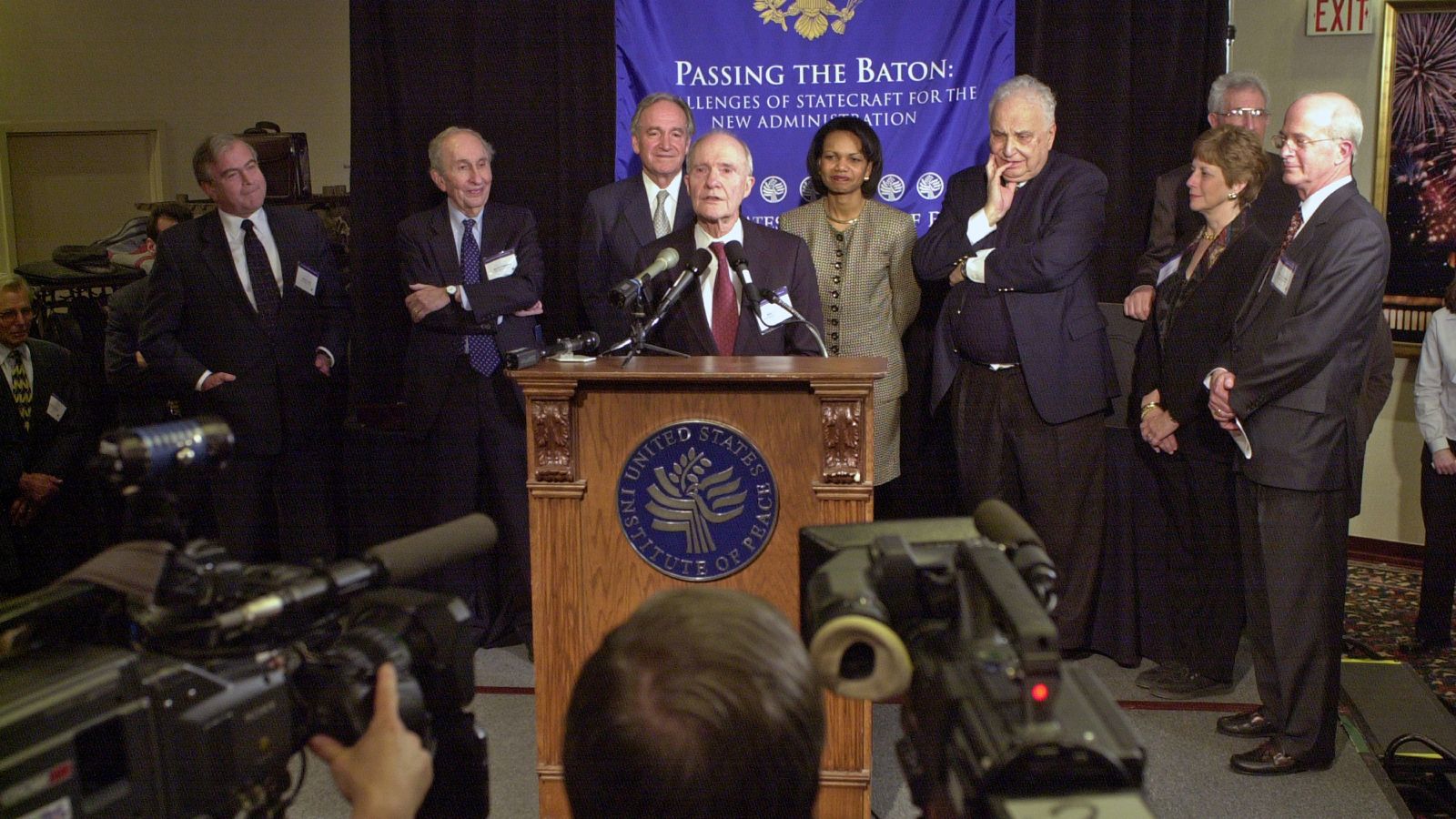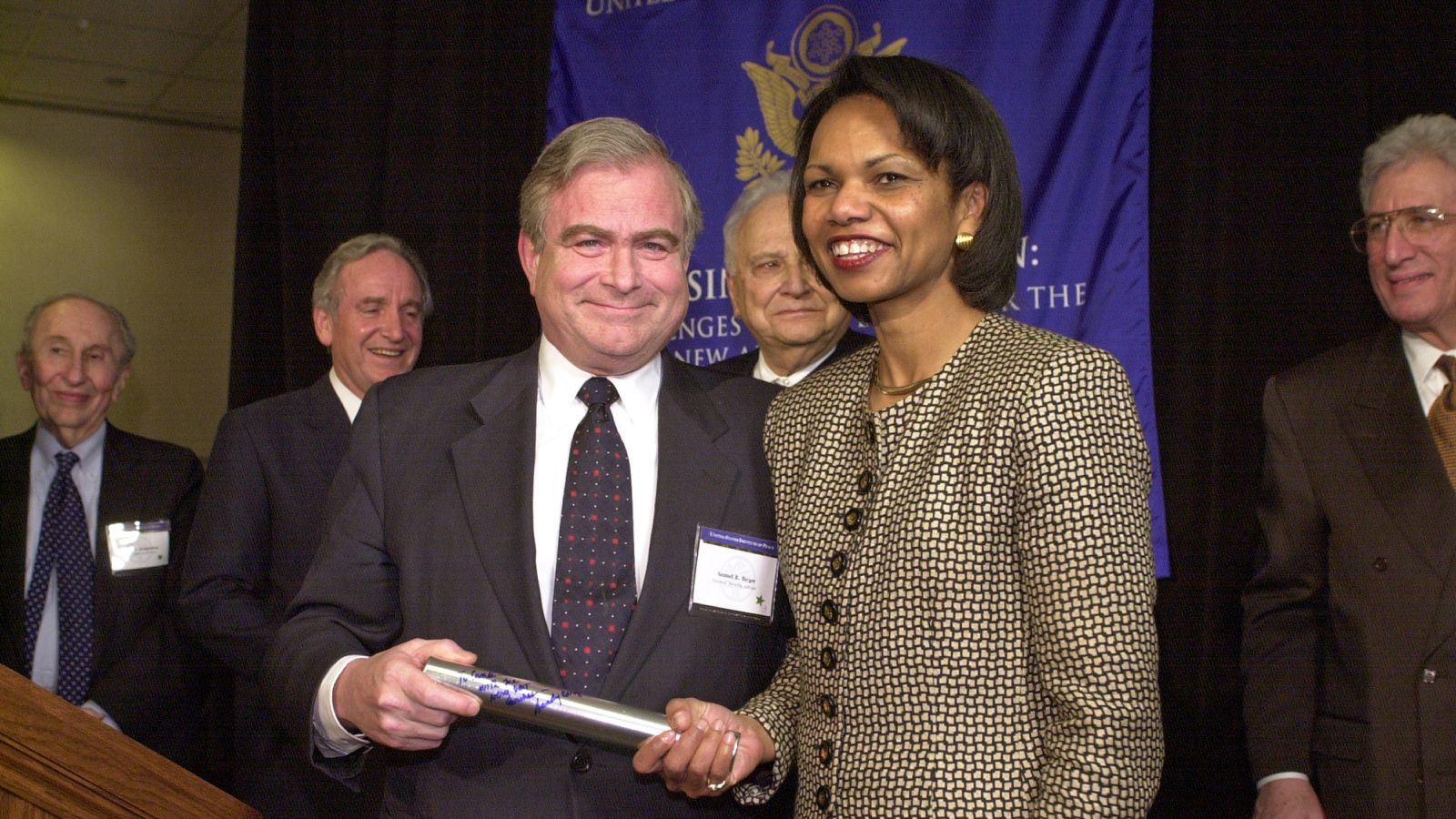Why USIP?
USIP is a national, nonpartisan, independent institute, founded by Congress and dedicated to the proposition that a world without violent conflict is possible, practical, and essential for U.S. and global security. During U.S. presidential transitions, USIP’s nonpartisan platform and convening power promotes discussion and information-sharing among policymakers and other experts. For the past 20 years, the Institute has convened Passing the Baton to bring together national security leaders from both sides of the aisle to improve U.S. policymaking and honor the American tradition of a peaceful transfer of power.
Passing the Baton 2025: Securing America’s Future in an Era of Strategic Competition
On January 14, 2025, the U.S. Institute of Peace (USIP) hosted Passing the Baton 2025: Securing America’s Future in an Era of Strategic Competition. This flagship, bipartisan event brought together national security leaders from across the political spectrum to mark the peaceful transfer of power and the bipartisan character of American foreign policy.
The event culminated in a ceremonial passing of the baton session between National Security Advisor-designate for President-elect Trump Michael Waltz and National Security Advisor to President Biden Jake Sullivan, who discussed the critical foreign policy challenges facing the nation. Stephen J. Hadley, former U.S. national security advisor to President George W. Bush, moderated the conversation.
Passing the Baton 2021: Securing America’s Future Together
Held in the wake of the violent January 6 attack on the U.S. Capitol, 2021’s Passing the Baton affirmed the peaceful transfer of power, the bipartisan character of American foreign policy, and the indelible role that democratic principles play in sustainable peace. USIP welcomed President Biden’s National Security Advisor Jake Sullivan and President Trump’s former National Security Advisor Ambassador Robert O’Brien for a discussion moderated by Secretary Condoleezza Rice, 66th Secretary of State and former National Security Advisor to President George W. Bush.
Passing the Baton 2017: America's Role in the World
USIP convened Passing the Baton with outgoing national security leaders in President Barack Obama’s administration and incoming national security leaders of President Donald J. Trump’s administration, along with officials of former administrations and other experts. The conference reviewed America’s role in an increasingly complex world and sought vital common ground on how to address threats to U.S. national interests and international peace.

Stephen J. Hadley welcoming remarks at the 2017 conference

A Conversation with Senator Lindsey Graham (R-South Carolina) at the 2017 conference
Passing the Baton 2009: Foreign Policy Challenges and the Opportunities Facing the New Administration
USIP hosted current and former U.S. foreign policy leaders, and nearly 1,900 others, for its second Passing the Baton at the transition from the administration of President George W. Bush to that of President Barack Obama. The conference examined U.S. policy challenges in the Middle East, Afghanistan and Pakistan, and nuclear proliferation, among others.
|
General David Petraeus of the U.S. Central Command speaks on Afghanistan at the 2009 Passing the Baton conference
|
Secretary of State Madeleine Albright addresses the 2009 conference on policies to prevent genocide.
|
Passing the Baton 2001: Challenges of Statecraft for the New Administration
USIP launched its first Passing the Baton in 2001, when President Clinton’s national security advisor Sandy Berger passed the baton to President Bush’s national security advisor Condoleezza Rice. The inaugural Passing the Baton began a USIP practice of hosting current, former, and incoming national security leaders to commemorate the peaceful transition of power between administrations. The 2001 conference considered the challenges of establishing a partnership with Russia, continued instability in the Balkans, and how to provide a more secure peace on the Korean Peninsula.
|
Brent Scowcroft, national security advisor to Presidents Gerald Ford and George H. W. Bush, speaks at the 2001 Passing the Baton.
|
National Security Advisor Sandy Berger passes the baton to his successor, Condoleezza Rice, at the 2001 conference.
|



